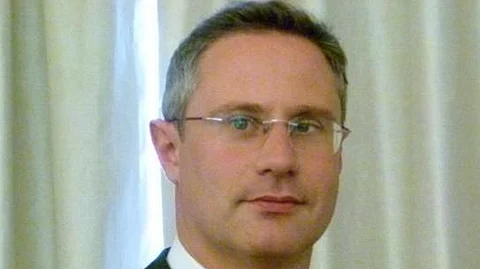

Israel has confirmed for the first time that it has supplied weapons to Ukraine to support its defense against Russia.
Michael Brodsky, Israel’s Ambassador to Ukraine, made the disclosure during an interview Sunday with Ukrainian journalist Marichka Dovbenko. Brodsky revealed that the Patriot air defense systems recently delivered to Ukraine by the United States were, in fact, older Israeli systems from the 1990s.
“We agreed to transfer them to Ukraine. Unfortunately, there hasn’t been much discussion about this,” Brodsky said. He added, “But when people say that Israel did not help militarily, that is not true.”
The ambassador's remarks were in answer to a question that Israel has avoided direct military support for Ukraine since the war began.
According to Brodsky, the Israeli Patriot systems were decommissioned in April 2024 and subsequently transferred to the U.S., which then delivered them—along with 90 MIM-104E PAC-2 interceptors—to Ukraine in January. Brodsky confirmed that the deal was authorized by Israeli Prime Minister Benjamin Netanyahu in September 2024.
The first Patriot systems originating from Israel are believed to have arrived in Ukraine as early as April 2023.
While there have been past reports suggesting that Israel was supplying older air defense systems to Ukraine via the U.S.—including reports in 2023 that some of the artillery shells used by Ukraine during its unsuccessful summer offensive came from U.S. stockpiles based in Israel—this is the first time an Israeli official has publicly acknowledged the country's direct role in the weapons transfers.
The confirmation may also have an effect on Israel-Russia relations. Early in the conflict, former Israeli Prime Minister Naftali Bennett attempted to mediate between the two sides by speaking to both Russian President Vladimir Putin and Ukrainian President Volodymyr Zelensky. Bennett even relayed a message from Putin indicating that he did not intend to assassinate Zelensky.
Israeli military support for Ukraine is a politically sensitive issue within Israel, in part due to the large Russian-speaking population, many of whom hold dual Israeli-Russian citizenship. The historical memory of the Soviet Union’s role in defeating Germany during World War II also contributes to public ambivalence.
Approximately 1.3 million Israelis—around 15% of the population—are Russian-speaking immigrants or descendants of immigrants from the former Soviet Union. Roughly 1.5 million Israelis are reported to hold Russian citizenship.